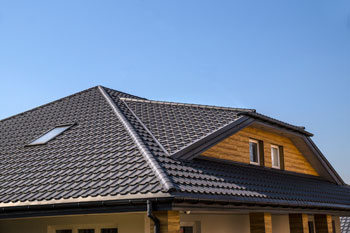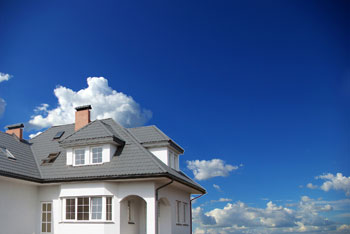
Which Roof Is Best For A Boise Home?
The choice of the best roofing material for Idaho homes is an important decision for every homeowner. There is a variety of options available, ranging from metal, tile, asphalt shingles, and composite roofing products. Each of these materials has its own set of advantages and drawbacks; considering all different factors before you settle on an option can help you make an informed decision.
 Regardless of the material you choose, the most important factor is that the roofing system you select must be able to withstand the elements that Idaho has to offer. Additionally, the materials you select should be chosen according to the purpose of your specific Boise roof; for instance, you may need something that is both resistant to fire and able to withstand the weight of snow. Taking into consideration both the practicalities of your roof and the materials available should make your choice easier.
Regardless of the material you choose, the most important factor is that the roofing system you select must be able to withstand the elements that Idaho has to offer. Additionally, the materials you select should be chosen according to the purpose of your specific Boise roof; for instance, you may need something that is both resistant to fire and able to withstand the weight of snow. Taking into consideration both the practicalities of your roof and the materials available should make your choice easier.
Selecting The Best Roofing Option
When it comes to comparing metal and tile roofing, metal typically wins out in terms of longevity and cost-effectiveness. Metal roofing tends to be more durable than tile roofing, especially when it comes withstanding the extreme weather conditions in Idaho. Additionally, metal roofing is less expensive than tile roofing, making it a financially savvy choice.
When considering asphalt shingles, it’s important to be aware of their lifespan, which is shorter than that of metal or tile roofing. Asphalt shingle roofing can also be more prone to developing leaks if it’s not installed properly. They also need to be regularly maintained and replaced, adding to the overall cost of the roofing system. Despite the additional costs, asphalt shingles present a versatile and attractive choice for those who are looking for something easier to maintain – they’re also lightweight and easy to install.
 Before making a decision, it’s important to get educated and factor in the energy efficiency, durability, and weather resistance of each of the available options. Education is key: considering the pros and cons of each material and research into climate-specific adaptations can help you make a decision that is in line with your budget and needs. Taking into account the purpose of the roof, the location and weather conditions, cost, and aesthetics can all help you determine which material will suit your needs best.
Before making a decision, it’s important to get educated and factor in the energy efficiency, durability, and weather resistance of each of the available options. Education is key: considering the pros and cons of each material and research into climate-specific adaptations can help you make a decision that is in line with your budget and needs. Taking into account the purpose of the roof, the location and weather conditions, cost, and aesthetics can all help you determine which material will suit your needs best.
When it comes to selecting the best roofing material for Idaho homes, there isn’t a one-size-fits-all answer. Do your research and weigh up the pros and cons of each option before making your selection. In the end, it all comes down to personal preference and your individual situation.
Contents
- 1 Which Roof Is Best For A Boise Home?
- 2 Selecting The Best Roofing Option
- 2.1 What are the best roofing materials to withstand Idaho’s climate conditions?
- 2.2 What roofing materials perform best in extreme weather conditions in Idaho?
- 2.3 What factors should be considered when selecting roofing materials for Idaho homes?
- 2.4 Are there specific roofing materials designed to last longer in Idaho?
- 2.5 Are there any special requirements for roofing materials in Idaho?
What are the best roofing materials to withstand Idaho’s climate conditions?
The best roofing materials to withstand Idaho’s climate conditions are asphalt shingles, metal, tile and slate. Asphalt shingles are the most affordable, widely available, and able to withstand high winds and snowfall, making them the go-to choice for most homeowners in Idaho. Metal is also a great choice, offering superior energy efficiency and durability, though it tends to be more expensive than asphalt. Tile and slate are tougher and last longer than other materials, but they require more effort and cost to install and maintain. According to a study done by the National Research Council of Canada, metal roofs have been proven to have the highest life expectancy, being able to last up to 40 years or more. Ultimately, no matter which material you choose for your roof, you should always consult experienced roofers in your area to ensure a quality installation.
What roofing materials perform best in extreme weather conditions in Idaho?
Answer: Metal roofing is often considered ideal for extreme weather conditions in Idaho, offering superior protection against both snow and hail. Metal roofs can withstand winds of up to 120 miles per hour and last up to 50 years with little maintenance, making them a great long-term investment. In addition, metal roofs can reflect up to 30-60% of the sun’s heat, saving homeowners money on energy costs. According to the National Roofing Contractors Association, metal roofs typically outperform wooden, asphalt and cedar shingles in terms of durability and protection in extreme weather conditions. Additionally, composite shingles are also a great option for extreme weather conditions in Idaho. They have a longer lifespan than traditional asphalt shingles and are able to reflect the sun’s rays to reduce cooling costs. Composite shingles also come in a variety of colors and options, making them a great choice for many homeowners. Ultimately, metal and composite shingles are both great options for extreme weather conditions in Idaho, depending upon your budget and aesthetic preferences.
What factors should be considered when selecting roofing materials for Idaho homes?
When selecting roofing materials for Idaho homes, there are a few key factors to consider, including the following:
1. Climate: Idaho has a varied climate with extreme temperatures between summer and winter, so it’s important to choose a material that offers good endurance and thermal performance regardless of season.
2. Durability: Selecting a roofing material that is resistant to hail, wind, snow, and other environmental elements is essential. Additionally, you’ll want a material that has a long life expectancy and can stand up to the wear and tear that comes from abrasion, rot, and UV radiation.
3. Budget: Consider the cost of materials and installation. Factors like the slope of your roof and the complexity of the design will also affect the overall cost of the project.
4. Maintenance: Some roofing materials require more frequent maintenance than others, meaning you should factor that into your overall budget and home upkeep schedule.
It is also important to remember to consult a professional roofing contractor to ensure you are selecting the best material for your individual needs and situation.
Are there specific roofing materials designed to last longer in Idaho?
Yes! There are specific roofing materials designed to last longer in Idaho. Composite shingles, for example, have been shown to be extremely durable in Idaho’s climate and often last 15-30 years. This is due in part to the combination of asphalt and fiberglass that make up composite shingles, which increases their resistance to temperature extremes. Metal roofing can also last longer in Idaho in comparison to other materials, and often lasts more than 40 years due to its enduring resistance to inclement weather. Lastly, tile shingles, although more expensive initially, can last up to 70 years in Idaho’s climate because of their non-porous nature.
Are there any special requirements for roofing materials in Idaho?
Yes! Building codes in Idaho do have special requirements for roofing materials. All roofing must be able to withstand winds up to 90 mph, which is significantly greater than many of the neighboring states, like Montana (85 mph). Additionally, Idaho building code mandates that roofing products must have fire classifications at least as good as Class A, which is the highest available and can withstand fires from burning ignited materials like burning embers, branches, and tree sap. Lastly, Idaho requires that roofing materials have an appropriate slope, which is typically a minimum of 3/12 (or 3 inches of rise for every 12 inches of run).
Fortunately, there are several materials that meet these requirements, such as slate, metal, wood, and composition shingles. All of these materials can provide high durability, fire resistance, and wind protection, while also offering aesthetic appeal. As a homeowner in Idaho, be sure to research building codes in your area and choose the correct roofing material to ensure safety and compliance.
Similar Articles:
https://www.ehroofing.com/roofing-products-idaho-homes/
https://www.ehroofing.com/right-roof-for-your-home/
https://www.ehroofing.com/roof-protection/
https://www.ehroofing.com/environmentally-friendly-roofing-products/
